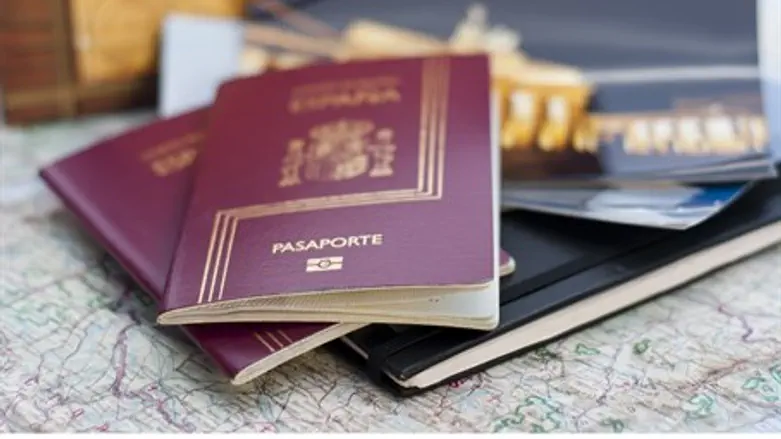
Jews of Sephardic descent received the green light to apply for Spanish citizenship last week, in a historic move to right the wrongs of the Spanish Inquisition.
However, amid the excitement, one lawyers says that the law makes the citizenship application process needlessly cumbersome, complex, and problematic.
"Amendments [to the law] require you to go through legal hell to get a passport," Attorney Leon Amiras, the chairman of the Association of Immigrants from Latin America, Spain and Portugal, stated to Walla! News Sunday morning.
Amiras cited the rule for Israelis to prove they have no criminal record. The Israel Police must confirm an applicant's [lack of] criminal history, and then must send that record to the Spanish embassy to Tel Aviv, and from there to Spain.
"If at the end of six months the bureaucracy has not finished the process, you need to apply again," Amiras lamented. "The whole process has become complex and problematic."
The new law gives Sephardic Jews the same dual citizenship privilege Spain currently grants only to people from its former colonies and neighboring Portugal and Andorra.
To gain this privilege, however, an applicant must prove a family connection to a family expelled from Spain via marriage certificates, birth certificates, or other written evidence. Applicants must also pass a Spanish language proficiency test at the Cervantes Institute or other Israeli universities, as well as demonstrate knowledge of current events in Spanish culture and geography - along with confirming the lack of a criminal record. The total cost of the application is well over 100 euros (432 shekels) and applicants must fly to Spain to complete the process.
Advice: check documents carefully
Amiras warned applicants to check their documents carefully with lawyers and seek help from the Sephardic Chief Rabbinate to confirm their heritage.
He also wondered aloud at the exact content of the "current affairs" questionnaire.
"Will they ask whether [Lionel] Messi or [Cristiano] Ronaldo plays for [the] Real Madrid [soccer team - ed.]? Whether the wine is better in Barcelona or Madrid?" he fired. "It is also unclear whether there will be questions about what the Spanish Constitution says and what it means practically in Spanish current affairs."
He warned further that each application must get approved via the Ministry of Foreign Affairs (MFA) before an applicant must fly to Spain and then appear before a non-Jewish committee to take the exam.
"God knows how much they will believe [in the veracity of the] documents," he said. "[The committee] will write a protocol in which he assesses [the applicant's] chances of being a [suitable] candidate to receive a Spanish passport and then it will be passed on to the Spanish Interior Ministry."
"Only after a year will they announce whether you're allowed to reach Spain or not to get the passport, when the end an applicant would take an oath before the King and get all the forms finalized."
If the process is not completed within a year, an applicant has to begin again from the beginning.
"If a person is sick or suddenly need to go abroad, everything is done," he said. "You have to start again - and the law is only valid for the next three years anyway."
Amiras added his own belief that the Spanish government was targeting Israelis in the law's complexity, as the majority of Sephardic Jews now reside in Israel. He stated that the bureaucracy is specifically designed to make things difficult. The Spanish government estimates that about 90,000 people will apply for citizenship, although officials admit there is no precise way of knowing how many descendants meet the criteria.
"There is a limit to how much you can abuse an applicant," he added. "500 years have passed since the expulsion from Spain and they give only three years for this process. It's just absurd."